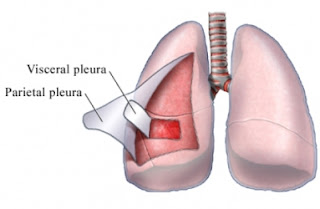When we have chest pain, almost all of us will ask: Am I having a heart attack?
Of
course there are lots of causes for chest pain. The pain around the
chest can originate from any organs or structures beneath the chest wall
such as:
- gallbladder/pancreas/liver
There are many types of chest pain, such as dull, sharp, tight, stabbing, pressing, burning etc. It is not easy to determine the cause of chest pain in most circumstances. However, doctors will ensure that the chest pain is at least not the type which is life-threatening and require immediate medical attention, such as heart attack, pneumothorax, aortic dissection, pulmonary embolism, acute pancreatitis etc.
When assessing chest pain, there are a few information which are important:
Location of chest pain:
- center of chest: heart, trachea, esophagus, musculoskeletal
- left or right of chest: lungs, musculoskeletal
- lower chest: stomach, gallbladder, pancreas, liver
The location of pain alone is not the only criteria to diagnose a chest pain. The pain of heart attack although commonly occurs in the center, but it may also be felt at the side of chest wall or the epigastric area (lower chest/upper abdomen).
Distribution of chest pain:
- radiate to the left chest/left arm/jaw: heart (angina, heart attack)
- radiate to the back: aorta (dissection), pancreas
- radiate to right shoulder: gallbladder
Typical angina pain distribution
Nature of the pain:
- tight, gripping, pressing: heart (angina, heart attack)
- sharp, stabbing: lungs (pneumothrax, pulmonary embolism), aorta (dissection), musculoskeletal
- colicky: gallbladder (stone)
- burning: stomach (ulcer, gastritis), esophagus (reflux)
Onset of pain:
- sudden: heart (angina, heart attack), aorta (dissection), lungs (pneumothorax, pulmonary embolism), musculoskeletal
- gradual: any other causes
Duration of pain:
- comes and goes and infrequent and well in between: usually not so serious condition (musculoskeletal, gallstone, gastritis etc)
- continuous but mild: may indicate more serious condition (pneumonia, cancer etc)
- continuous and severe or worsening: may indicate more serious conditions that require medical attention immediately (heart attack, pneumothorax, pulmonary embolism, perforated gastric ulcer)
Pain aggravation:
- aggravated during inspiration: lungs (pleural), heart (pericardium), muscoloskeletal
- aggravated by food: stomach, gallbladder, esophagus
- aggravated by moving the arms: musculoskeletal
- aggravated by cough: lungs (pleural), heart (pericardium), muscoloskeletal
- aggravated by laying flat (supine): pericardium, pancreas
- aggravated by pressing: musculoskeletal, pleural
Severity of pain:
- Severity of pain is very subjective and varies from each individual. Generally the more severe the pain, the more serious the condition, such as in heart attack, aortic dissection, perforated gastric ulcer etc. However, some gastritis, gallstone, musculoskeletal pain may give rise to severe pain, even though they are not life-threatening.
Associated signs & symptoms:
This may be the most important information in determining the cause of chest pain.
- cough: lungs (infection, pneumothorax, cancer, embolism)
- shortness of breath: lungs (any cause), heart (heart attack)
- fever: infection, inflammation
- indigestion: stomach, esophagus, gallbladder
- nausea/vomiting: stomach, esophagus, heart (heart attack)
- palpitation: heart, lungs (pulmonary embolism)
The information above is not intended for self-diagnosing of chest pain. Please seek medical attention if you have a chest pain.







